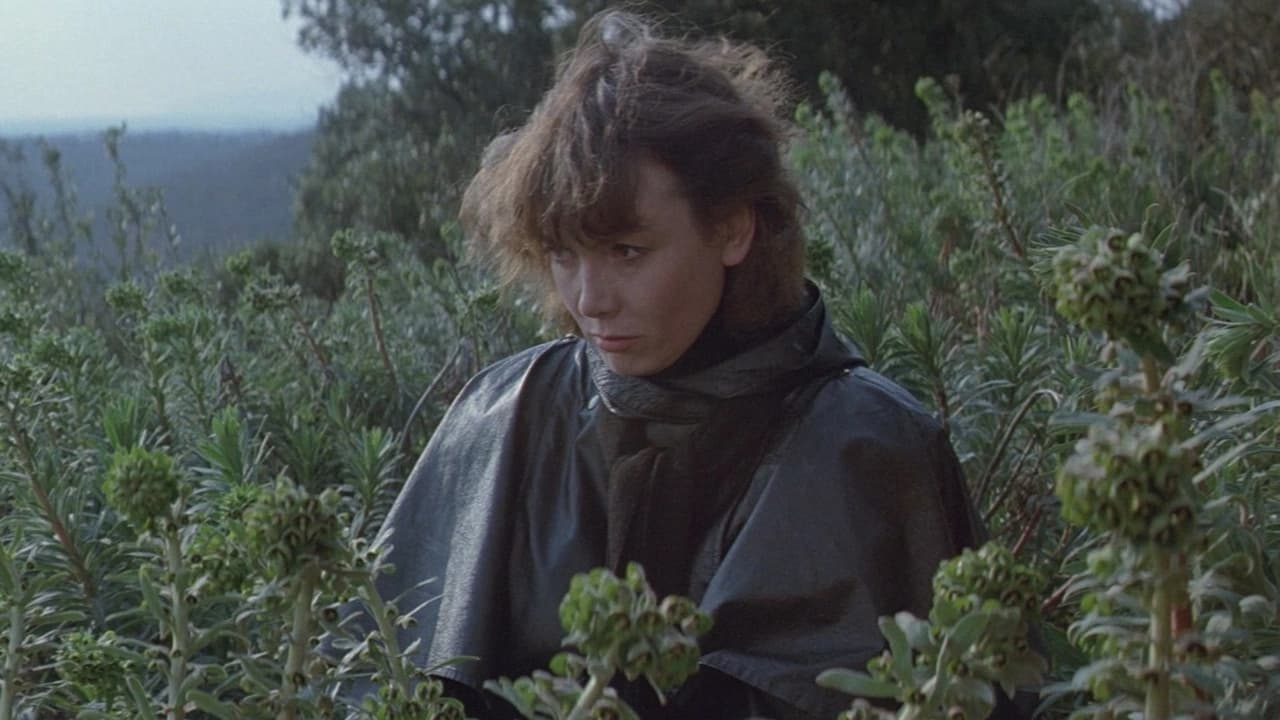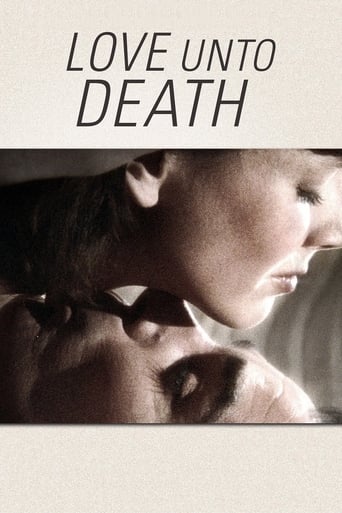

A Bergmanesque drama about mortality and religion. In the opening scene, Pierre Arditi dies in front of his girlfriend, Sabine Azema, but then miraculously comes back to life as if nothing happened. It changes his outlook on existence, and the two go through something of a spiritual journey. Their best friends (Fanny Ardent and Andre Dussollier), both pastors at their church, try to guide them via their religion, but they don't quite buy into the Christian views. This film certainly has its interesting points, and the acting is very good. The religious and philosophical discussions are a bit flat and certainly not up to Bergman's level. Whatever I could have enjoyed in this film, though, is absolutely ruined by a horribly annoying editing gimmick: the film is comprised of very short vignettes, which is fine, but when one of these scenes ends, the film cuts to a black background with snow (or perhaps dandruff) floating around in front of it. A pretty image, once, but these shots last anywhere from ten to thirty seconds, and this must happen a hundred times. I would say these snowy shots take up a good 30 minutes of this 90 minute film. To boot, they are accompanied by a loud, obnoxious, dissonant musical score. Resnais might as well have just shouted "BRECHT!" between each scene. At least it would have been faster!
... View MoreAfter going through a huge financial failure in 1967 with Je ta'ime, je t'aime Resnais rose back in 1977 with Providence. In 1980 he came up with My American Uncle which was quite a financial success and, got even an Oscar nomination for Best Writing. Alain Resnais has always been able of creating something completely original and breaking all expectations, shaking the way we look at film and creating new rules. He has always been interested in past and memory, he sees memory as an instrument of imagination through which one tries to reconstruct one's past. He has been portraying these time travelers who are in between of past and presence (Je t'aime, je t'aime), who keep asking themselves what happened in Hiroshima and Marienbad, Algeria and Spain. L'amour à mort wasn't the first time Resnais dealt with memory and oblivion, but unlike in his other films, he portrayed our attempt to try avoid remembrance and the necessity of it.L'amour à mort is the director's tenth feature and to my mind represents a certain climax in his career. The film requires its viewer to throw oneself into the wonderfully confusing world of the director and accept his unique rules of the game. It's an ambitious, unusual and rich film, full of clever insightful details that please the viewer at so many levels.Resnais has always made the unexpected. After seeing Providence (1977) and My American Uncle (1980) I was expecting a somewhat similar film. But what I got was something completely different, in a good way, since I ended up liking L'amour à mort more than the two mentioned before. Unusually for Resnais the film has got a linear storyline: Elisabeth and Simon are a couple, deeply in love. All they need is each other, and their only friends are the priest Jérôme and his wife Judith. One day, in the first scene, Simon dies but resurrects during the same scene. First he doesn't remember anything about his afterlife experience but eventually things start to come up to his mind; a river he had to cross, sounds and a melody he tries to catch.The film focuses on discussions about life and death between Simon, Elizabeth, Jérôme and Judith. Simon and Elizabeth don't really believe in God, but don't care enough to recognize atheism. Judith is somewhere in between and Jérôme is, as a priest, a fundamental Christian, who is unable of commenting anything without a bible verse. Alain Resnais is religiously an agnostic. He doesn't claim that he understands the universe but isn't interested in religious riddles. Resnais has said that L'amour à mort isn't a philosophical film, which might be quite hard to believe at times. Since the film has got a strong existentialist touch but perhaps Resnais wanted to highlight that this is more of a film about love. Love and death, and how they interbreed.In the end, Simon decides to commit a suicide because he is unable to live after experiencing something in hereafter, he has to get back there. It is absolutely necessary for him to remember it. When Simon has killed himself Elizabeth finds herself in a dead end - she's a prisoner of love. This brings an intriguing perspective on the film; is Alain Resnais depicting the paradox of love and freedom? The characters certainly talk about freedom, and this brings us back to the existentialism in the film. Certainly the conception of freedom in L'amour à mort is indeterministic; we are not guided by fate, but our choices are necessary, so we aren't free. Elizabeth is still controlled by her emotions, her love for Simon from whom she can't let go. Love is Elizabeth's religion and death guides it.
... View MoreAlain Resnais films are uncanny in the way that they aren't really edited for continuity, but instead the shot seems to finish right where a memory has edited. Love unto Death is at times a quiet existential drama and a roundly creative magical realist movie, and either way treats the audience to a whole new aspect of the Eros/Thanatos relationship... or perhaps creates a new relationship, that of Agape/Thanatos.The beginning is like a bizarre surrealist horror movie. A woman desperately runs around the house while a man lays dying in his bed--did she kill him, or what happened? Soon that tension is dissolved as a doctor arrives and pronounces him dead, but from there a newer, stranger drama begins: the man wakes up, and after being dead the woman and man fall in love to actually quite tragic consequences. Meanwhile, their friends, who are both priests, watch on and submit their own debate into the nature of love, faith, and devotion.Resnais always seems to have some device to make these sorts of narratives work, and what's so amazing about his films is that those devices always work. In this case, Resnais intercuts the scenes with shots of snow falling to an arousing orchestral score, which fades off and bleeds into the subsequent shots that continue the story. Trapped in this elegiac aside periodically, the film develops a rhythm not too unlike an epic poem, and I got strange flashbacks to Dante's Divine Comedy from this one, despite the lack of direct reference within the movie. Resnais is known as a very poetic filmmaker but this extends past just the cinepoem structure to something that forces a degree of introspection in the viewer, which has the possibility to bring to surface some odd recollections. Memory-narrative, Resnais creates.--PolarisDiB
... View MoreResnais assembles four staples of his repertory company for a downbeat exploration of love, faith, death, call it what you will - or twelfth night.You need stamina to sit through a sub-Bergman philosophical tract that not only doesn't get anywhere but doesn't seem to WANT to get anywhere. You could argue that it's better to travel hopefully than to arrive and you could further argue that with fellow travellers of this quality - Sabine Azema, Andre Dussollier, Pierre Arditi, Fanny Ardant - it's not even bad to travel indefinitely and if you are one of those then this is the journey for you but a short break it's not. As is to be expected from such a stellar cast the acting is certainly out of the right bottle but frailer hearts may wish to exchange this bottle for the one with the skull and crossbones on the label long before half way. For olive lovers only. 7/10
... View More